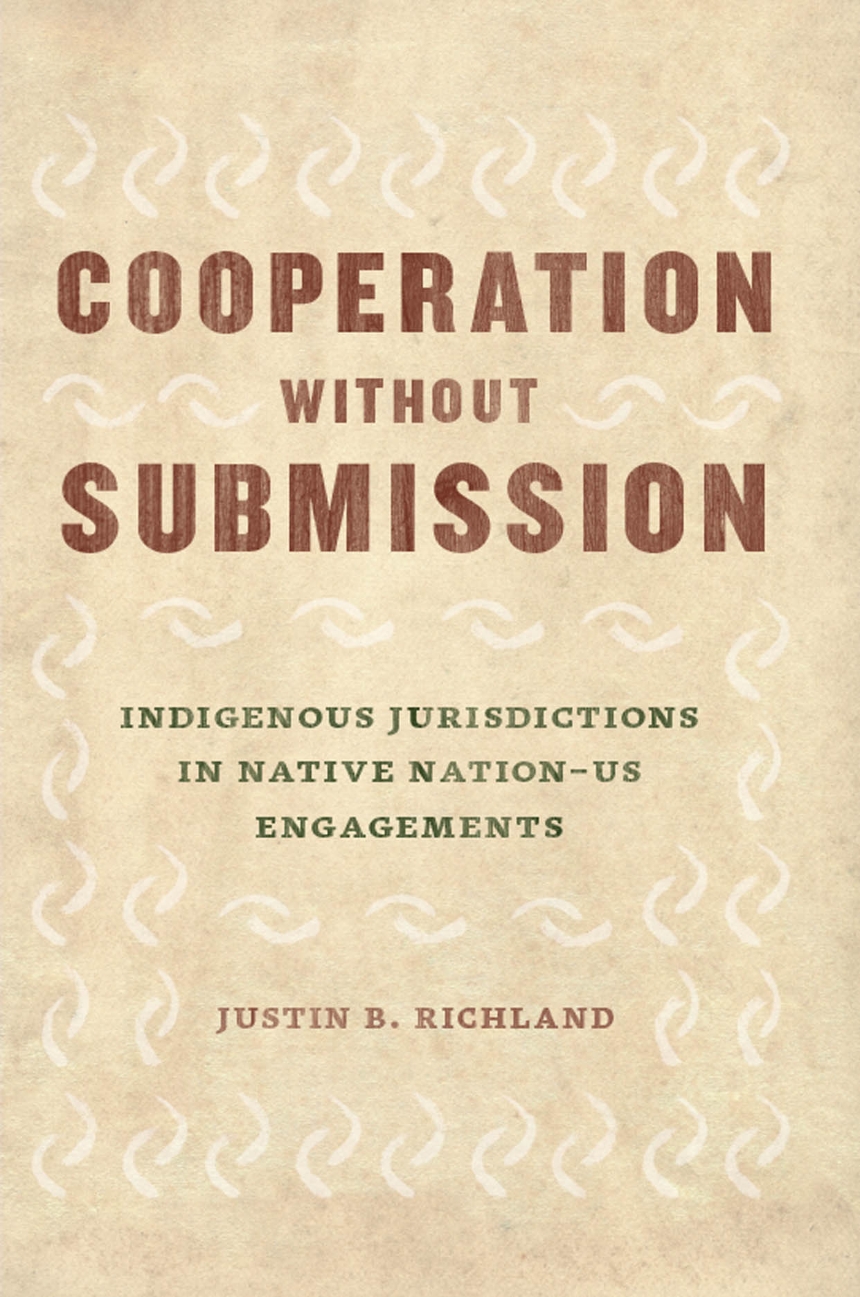Cooperation without Submission
Indigenous Jurisdictions in Native Nation–US Engagements
9780226608761
9780226608594
9780226608624
Cooperation without Submission
Indigenous Jurisdictions in Native Nation–US Engagements
A meticulous and thought-provoking look at how Tribes use language to engage in "cooperation without submission."
It is well-known that there is a complicated relationship between Native American Tribes and the US government. Relations between Tribes and the federal government are dominated by the principle that the government is supposed to engage in meaningful consultations with the tribes about issues that affect them.
In Cooperation without Submission, Justin B. Richland, an associate justice of the Hopi Appellate Court and ethnographer, closely examines the language employed by both Tribes and government agencies in over eighty hours of meetings between the two. Richland shows how Tribes conduct these meetings using language that demonstrates their commitment to nation-to-nation interdependency, while federal agents appear to approach these consultations with the assumption that federal law is supreme and ultimately authoritative. In other words, Native American Tribes see themselves as nations with some degree of independence, entitled to recognition of their sovereignty over Tribal lands, while the federal government acts to limit that authority. In this vital book, Richland sheds light on the ways the Tribes use their language to engage in “cooperation without submission.”
It is well-known that there is a complicated relationship between Native American Tribes and the US government. Relations between Tribes and the federal government are dominated by the principle that the government is supposed to engage in meaningful consultations with the tribes about issues that affect them.
In Cooperation without Submission, Justin B. Richland, an associate justice of the Hopi Appellate Court and ethnographer, closely examines the language employed by both Tribes and government agencies in over eighty hours of meetings between the two. Richland shows how Tribes conduct these meetings using language that demonstrates their commitment to nation-to-nation interdependency, while federal agents appear to approach these consultations with the assumption that federal law is supreme and ultimately authoritative. In other words, Native American Tribes see themselves as nations with some degree of independence, entitled to recognition of their sovereignty over Tribal lands, while the federal government acts to limit that authority. In this vital book, Richland sheds light on the ways the Tribes use their language to engage in “cooperation without submission.”
232 pages | 9 halftones, 1 table | 6 x 9 | © 2021
Chicago Series in Law and Society
Anthropology: Cultural and Social Anthropology
Law and Legal Studies: General Legal Studies
Reviews
Table of Contents
List of Figures
A Note about Transcripts, Orthography and Terminology
Part 1 Introduction
1 Cooperation without Submission
2 Beyond Dialogue: A Brief History of Native-US Engagement
Part 2 Hopi Juris-diction
3 CWS: A Hopi Sociopolitical Theory of Knowing, Relating, and Norming
4 Juris-dictions of Significance: CWS in a Hopi-US Engagement
Part 3 Making Indigenous Juris-diction Unrecognizable
5 Perils of Engagement and Failures of (Federal) Acknowledgment
6 Taxing Relations: Indigenous Juris-diction in the Tribal Tax Status Act
Part 4 Conclusion
7 Standing with Indigenous Juris-dictions
Acknowledgments
References
Notes
Index
A Note about Transcripts, Orthography and Terminology
Part 1 Introduction
1 Cooperation without Submission
2 Beyond Dialogue: A Brief History of Native-US Engagement
Part 2 Hopi Juris-diction
3 CWS: A Hopi Sociopolitical Theory of Knowing, Relating, and Norming
4 Juris-dictions of Significance: CWS in a Hopi-US Engagement
Part 3 Making Indigenous Juris-diction Unrecognizable
5 Perils of Engagement and Failures of (Federal) Acknowledgment
6 Taxing Relations: Indigenous Juris-diction in the Tribal Tax Status Act
Part 4 Conclusion
7 Standing with Indigenous Juris-dictions
Acknowledgments
References
Notes
Index
